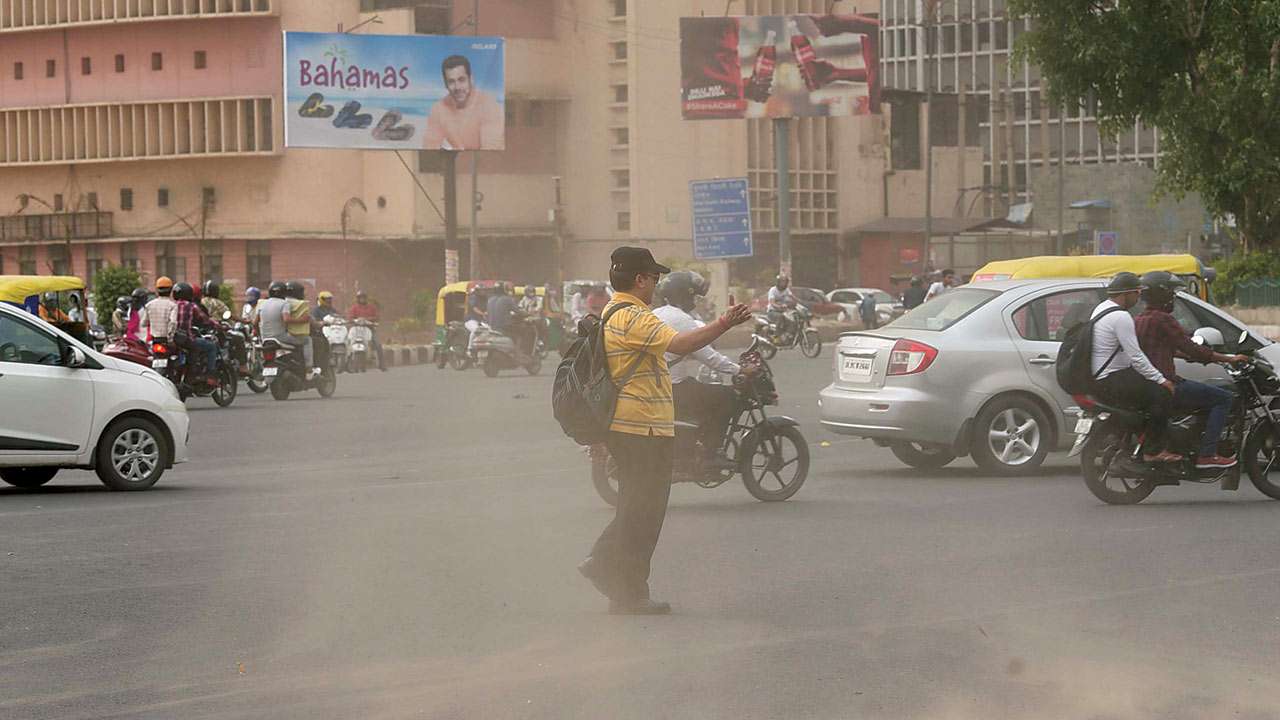Delhi: Dust storm brings respite from heat, but air quality continues to remain poor

Dust storm
Dust storm lashed Delhi and its neighbouring cities on Thursday afternoon, making the weather slightly cooler. At the same time, air quality, even though it remained in the 'poor' category, improved marginally compared to previous days when the AQI had crossed the 300 mark, making the air 'very poor'. The AQI recorded by pollution apex body Central Pollution Control Board was 222 on Thursday. 'Poor' air can cause breathing trouble in people upon prolonged exposure.
The meteorological department also predicted light showers at few isolated places in the evening. The dust storm, meanwhile, brought the maximum temperature down by one degree. The Safdarjung observatory recorded maximum temperature of 32.3 degree Celsius, which one notch below the season's average. The minimum temperature, however, was four points more than normal, settling at 24 .5 degree Celsius. The city also woke up to a cloudy morning on Thursday. This was followed by a dust storm in the afternoon. On Wednesday, the minimum temperature recorded was 23 degree Celsius while the maximum temperature settled at 34.6 degree Celsius. The weather has remained dry for the past few days with low humidity level. 49 per cent humidity was recorded at 5:30 pm by the IMD. The weatherman has predicted partially cloudy sky on Friday while mercury will oscillate between 33 to 35 degree Celsius till Sunday.
Meanwhile, the city continued to choke on pollution as the AQI settled at 222 at Anand Vihar monitoring station on Thursday. PM 10 was the primary pollutant, recording 417 micrograms per cubic metre, way beyond the permissible limit. Bawana air was 'very poor' according to the data collated by CPCB. Its AQI was 327. Dilshad Garden, meanwhile, fared well with 'moderate' air quality, having an AQI of 96. Neighbouring town Faridbad was poor at 218 AQI, so was Noida at 201 AQI.
Not Clear
The city continued to choke on pollution as the AQI settled at 222 at Anand Vihar monitoring station on Thursday. PM 10 was the primary pollutant, recording 417 micrograms per cubic metre, way beyond the permissible limit.